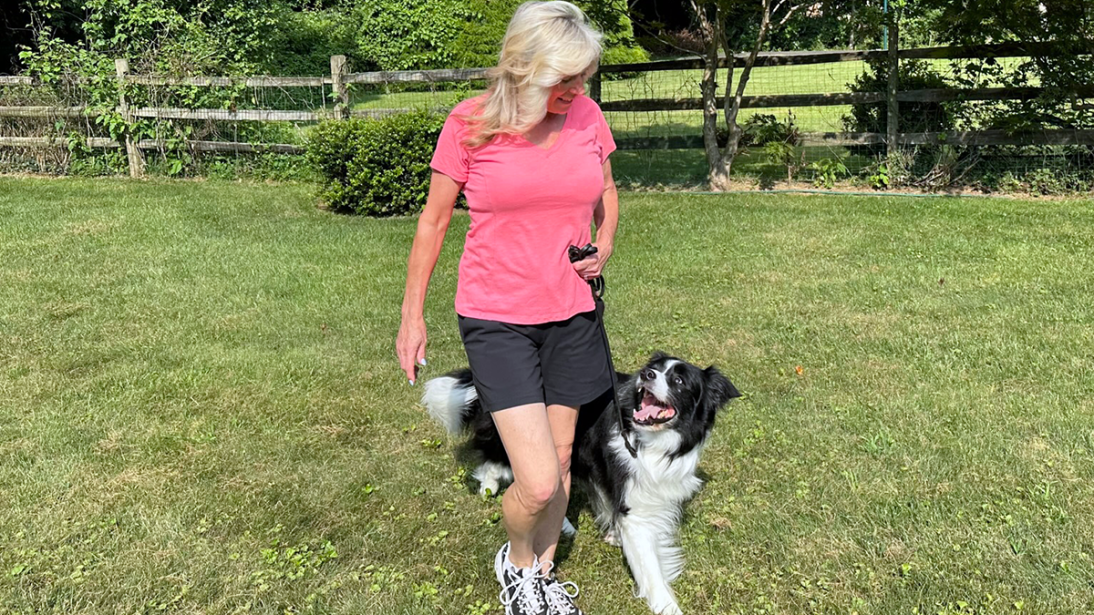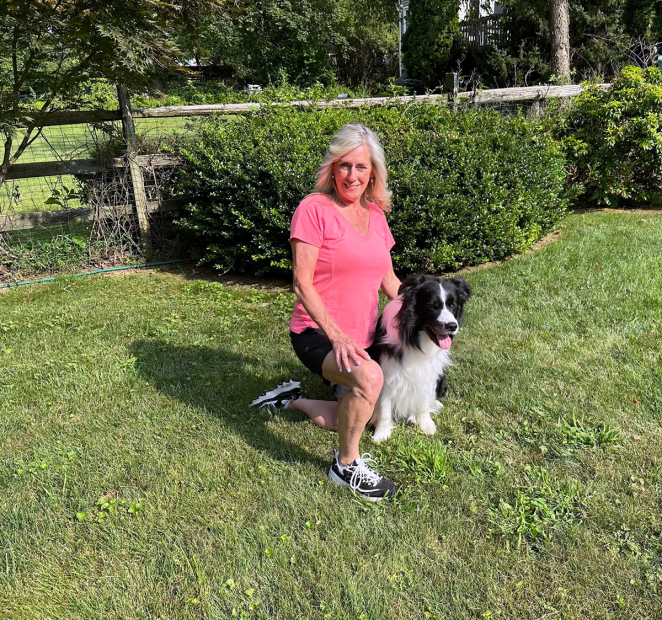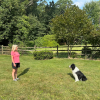Getting a dog is a whirlwind of excitement, uncertainty, and dollar bills. According to a 2023 study conducted by Forbes, pet-owners spend on average $730 a year on their dogs, with 41% of survey participants spending between $500 to $1,499.
With International Dog Day coming up on August 26th, we’re here with some advice on how to save money on training your fluffy friend. Whether you are a first-time dog owner or a seasoned veteran of dog ownership, read below for some tips on how to save on dog training expenses from Stacie Royal, a dog trainer for over 30 years and founder of Royal Canine Dog Training LLC of Florham Park, New Jersey, and a longtime TD Bank small business customer.
Why Should I Invest in Dog Training?
Just like people, dogs are not machines that are automatically programmed to understand the behaviors expected of them. Every dog has its own unique personality that comes along with a set of behaviors. Through training, you are helping your dog become the best that they can be. While training can be a long and expensive process, it is crucial to developing a healthy and happy life for both human and dog. Embrace your dog’s personality and natural quirks while equipping them with the knowledge and understanding that will help them thrive in their environment.
Common Errors with Dog Training
A common error in dog training is not starting early enough, which can lead to more money being spent later. Training classes are a great way to give your dog the opportunity to interact with dogs of different sizes, ages, and personalities. However, your instructor may not be able to address one-on-one questions so easily.
Private training can help further identify areas of behavior that you would like to see addressed. It is important to take your time in identifying these behaviors to find the right trainer, that way you do not bounce around from trainer to trainer in a merry-go-round of confusion for both owner and dog. Plus, it helps to keep the cash in your wallet if you find the right trainer for your specific needs the first time.
Where to Look for Training
Conduct research when looking for dog training. Hopping onto your town’s social media page to ask for referrals is a great way to see which schools and trainers are popular in your community. Veterinarians are often able to provide recommendations as well. Basic training programs are run through official training schools and many pet-store franchises, but you can also turn to private training if that better suits the needs of your dog. While the price may be daunting, if your dog is presenting more challenging behaviors, addressing it one-on-one may be necessary and will save you time and money in the long run.
Keep in mind that it is not a “one size fits all” when it comes to training. If seeking individual instructors, investigate the experiences that person has in working with different types of dogs as well as different types of behaviors. Additionally, you want to have a positive relationship with your trainer in that you feel comfortable and confident during training sessions.
Buying Training Equipment
While it may be tempting to clear the shelf of dog-training tools at your local pet-store, consider what training equipment you are buying and why. Take some time to observe your dog. What are the issues? What are you trying to accomplish? Then, fit the training device to that behavior. This may be something you do after a few training sessions or a class. That being said, tasty training treats are a must!
The Puppy Stage
Starting training with a puppy will help you enforce positive behaviors as they get older, and potentially save you from the money you would have thrown at trainers after your dog destroyed your plush new couch. The primary area to work on with a puppy is focus work. If you are unable to get your dog to focus on you at a young age, it will become more challenging as they get older and may require additional steps.
When to Stop Training?
In short, never stop training your dog! If your dog is older, training is an effective and wonderful tool to keep your dog safe and to strengthen your bond. After the pandemic ended, many dog owners realized that their dog, now 2-3 years old, had not been effectively socialized. Taking the time to socialize your pandemic pup is still important and will overall lead to a more balanced and relaxed lifestyle for your beloved pet.
Getting a dog is a financial investment. The first year, especially, can be tough on your wallet. In the early stages, tackle training head-on, and remember, as you see the floppy-tongued smile of your new family member, that it’s worth every penny.
For more on personal finance topics
If you have more questions about other personal finance topics that matter to you, visit the Learning Center on TD Bank’s website. You can find out more information about TD Bank's services at td.com
We hope you found this helpful. This article is based on information available in August 2023 and is subject to change. It is provided as a convenience and for general information purposes only. Our content is not intended to provide legal, tax, investment, or financial advice or to indicate that a particular TD Bank or third-party product or service is available or right for you.
For specific advice about your unique circumstances, consider talking with a qualified professional.
Links to third-party sites do not constitute an endorsement or an approval by TD Bank of any of the products, services or opinions of the corporation or organization or individual. TD Bank bears no responsibility for the accuracy, legality, or content of the external site or for that of subsequent links. Any third-party trademarks or service marks mentioned herein are the property of their respective owners. Contact the external site for answers to questions regarding its content. See our website Terms of Use for more information.












